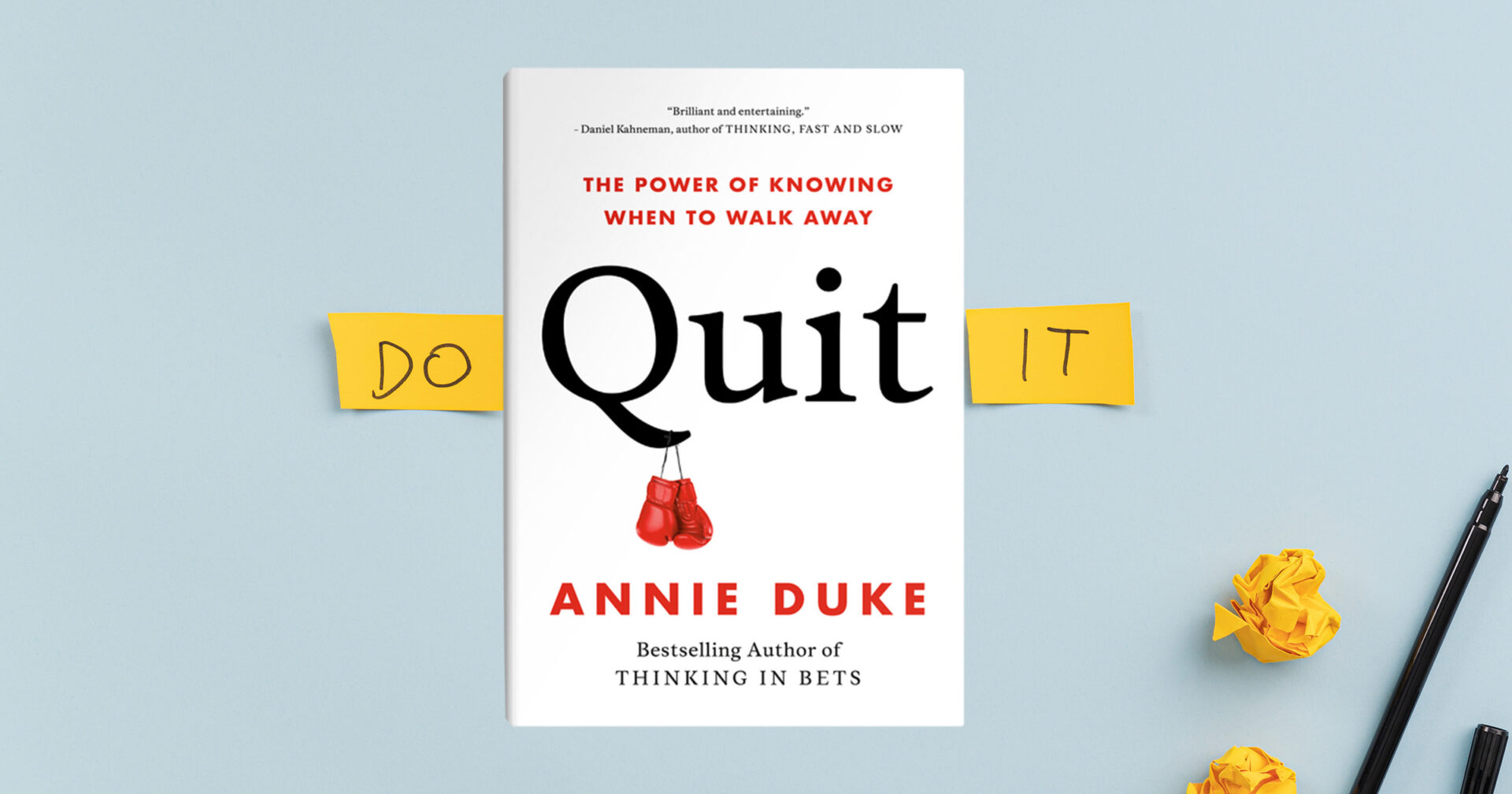In today’s hyper-competitive world, where quitting is often stigmatised and seen as a sign of weakness, Annie Duke provides a fresh perspective that advocates the necessity of knowing when to walk away from certain pursuits. Quit: The Power of Knowing When to Walk Away tests the common belief that perseverance is always a virtue, making a case for why quitting when done right, can be a force of liberation and growth.
The audiobook was clear and concise demonstrating her ability to break down complex concepts into digestible insights. Through a wealth of research and personal anecdotes, she offers key takeaways from well-known cases of successful quitters. Duke’s storytelling abilities and her decision-making and risk management background, provide convincing stories and hard evidence to support her claims.
Annie Duke was a successful professional poker player, and an example used in the book that stood out for me was that professional poker players quit far more than amateurs at the start of the hand. Pros play a mere 15–25% of the two-card starting combinations they are dealt in Texas Hold’em. Compare that to an amateur who will stick with their starting cards over half the time.
For business readers, Quit offers valuable insights to readers at any professional stage, whether they are looking to reassess their career direction or refine their decision-making and prioritisation skills. With interesting stories from high achievers in various fields, Duke reveals what hinders our ability to quit effectively, such as escalation of commitment, desire for certainty, and status quo bias. She offers practical tools, such as “quitting contracts” and “premortems and backcasts,” to combat these biases and make better professional and personal decisions.
Duke highlights the importance of embracing flexibility in goal-setting and being open to pivoting when circumstances change. The book challenges us to adopt an experimentation mindset, maximising options while learning from mistakes. It also challenges us to tackle the hard parts of a challenge first, so we can learn something new while having a set of “kill criteria”. The kill criteria is a checklist that informs the decision to quit if the list is all ticked off.
Compared to other business self-help books that promote relentless hustling and perseverance, Quit sets itself apart by advocating for a more nuanced understanding of goal achievement. Duke’s message of knowing when to fold is refreshing and, arguably, more relevant than ever in our current high-pressure environment.
Quit: The Power of Knowing When to Walk Away is a thought-provoking and well-researched exploration of the important skill of knowing when to walk away. Annie Duke delivers wisdom and practical advice to benefit many business professionals and anyone seeking personal growth. I highly recommend the book to those looking for an alternative view on success and decision-making, and as a valuable counterpoint to the dominant “never quit” mindset.




